|
Advent, the word in and of itself instills hope and builds anticipation for greatness, joy and peace. What is it are we waiting for? It seems with the close of the year, we wait anxiously for those intimate times with our family and friends, a break from work and the routine and a time for closeness. Maybe, we are waiting for a Christmas party, presents and the holiday ambience. As a student, I always find it paradoxical that finals would be during the season of Advent. The hectic study and preparation of exams easily muddles the preparation I could be doing in my own heart for the King. The anticipation, the excess and busyness I find myself in reminds me of the Gospel story where the disciples forget the presence of the Lord in their midst: “And behold, there arose a great storm on the sea, so that the boat was being swamped by the waves; but [Jesus] was asleep. And they went and woke him, saying, ‘Save us Lord; we are perishing.’ And he said to them, ‘Why are you afraid, O men of little faith?’ Then he rose and rebuked the winds and the sea; and there was a great calm” (Matthew 8:23-26). Looking without eyes of faith, the disciples found themselves in a panic and disarray. With a focus on the storm and on the circumstance that assailed them, the disciples forgot the most essential truth that was right there with them on the boat: the Sleeping Christ. The answer to their cries for help was peacefully present in their situation ready to grace them with a great calm. What is it, again, that we are waiting for during this Advent Season? The gift we are waiting for is the sleeping babe, the sleeping Christ, in the manger. The Divine Son, who humbles Himself so greatly that He arrives in the stillness of night, in the quiet with shepherds and sheep alike. The Creator God comes in the stillness. What we are waiting for is the Prince of Peace. My own hurriedness in finishing all of my papers and exams, finding the perfect gifts for my friends and family, making travel plans and somehow finding time to stop and recognize where I am headed resembles the experience of the disciples. I am awaiting His peace, but my actions reveal otherwise. I must intentionally make the effort to stop and breathe in what I am truly searching for this December. May the anticipation throughout this Advent season bring us to stop and ponder the mystery of the Lord of the Universe resting in a manger who has come to encounter our hearts. May the peace of the Sleeping Christ invade our hearts, our minds, and our actions so we too may accept the true gift He wishes for us all this season: a great calm (Matthew 8:26). **This blog was originally published on December 12, 2015.** **This photo is from: https://thejesusquestion.org/2011/12/25/nativity-paintings-from-around-the-world/**
0 Comments
“Because children have abounding vitality, because they are in spirit fierce and free, therefore they want things repeated and unchanged. They always say, "Do it again"; and the grown-up person does it again until he is nearly dead. For grown-up people are not strong enough to exult in monotony. But perhaps God is strong enough to exult in monotony. It is possible that God says every morning, "Do it again" to the sun; and every evening, "Do it again" to the moon. It may not be automatic necessity that makes all daisies alike; it may be that God makes every daisy separately, but has never got tired of making them. It may be that He has the eternal appetite of infancy; for we have sinned and grown old, and our Father is younger than we.” G.K. Chesterton, Orthodoxy Today on the feast day of St. Therese of Lisieux, affectionately known as the Little Flower, I turn to my sons’ example in accepting everything completely from God. My almost two-year-old is predictable: he loves blueberries, watching the garbage truck pick up trash on Mondays and Fridays, and playing in the backyard. Recently he has taken to playing with a giant cardboard box that my husband engineered into a “cottage” with a window and a workable door. The joy and excitement he exudes each morning playing with his cardboard cottage didn’t strike me at first. But after a few rounds of him serving me imaginary chocolate milk and tea from his little abode, I realized that this joy, the same joy and freedom he has when running ferociously to the front of the house to see the garbage being picked up, is the joy and freedom St. Therese of Lisieux wrote about and emulated in her life. “To remain a child before God means to recognize our nothingness, to expect everything from God. It is not to become discouraged over our failings, for our children fall often, but they themselves are too little to hurt themselves very much.” St. Therese of Lisieux Therese gives us the example of radical abandonment to the Father’s will. When we take a snapshot of her life—where she lived most of her life, whom she met, what accolades she was awarded—we see that her life was not much in worldly standards. And yet, Therese is honored with the title “Doctor of the Church.” Her writings and her example of charity beckon us to take a closer look at this simple and great saint. While Saint Therese is a heavily pestered saint when it comes to intercession (as her intercession is known to be great) and her quotes are seen often, today let us take after her childlikeness and see the world through her eyes with childlike abandonment to God. I encourage you to find five beautiful things in the mundane of your day that your eye has not yet “truly” seen before. Thank and praise God for the life He has given you, in all its sufferings and joys, and ask for St. Therese’s intercession in seeing the beauty in the mundane. For more resources on Marriage and Family, please click here. **This blog was originally published on October 1, 2020.**
On Pentecost we celebrate the gifting of the Holy Spirit to the Apostles in the Upper Room. For nine days past they have been hiding in fear, awaiting this gift, the Advocate. The Holy Spirit descends upon the Church in an outpouring of love, and with Mary as their guide, the disciple’s mission begins: proclaiming the Kingdom, outpouring their gifts, and healing the world.
The Apostles were filled with fear up to this point. They had witnessed the Risen Lord’s Ascension into Heaven, and still their purpose was not yet realized. The liturgical calendar enables the faithful to reflect on our own lives, hearts, and mission. We are called to place ourselves in the very heart of the story, to participate as if this very event is happening today. And so Pentecost beckons the questions: “In what ways am I in the Upper Room, unsure of how the Lord is calling me to serve?” “What brings my heart to fear?” “In what ways am I holding onto lies, listening to a voice that is not the Lord’s?” Jesus Christ chose men and women who, like you and me, struggled with human fears, human sin, and human misunderstanding. We can resonate with their experience in the Upper Room, awaiting guidance and courage. The moment the Holy Spirit descends on those in the Upper Room, everything changes and their hearts are transformed. The Apostles baptized 3,000 people that very day. The mission of the Church begins, and the Apostles are equipped with what is needed to live out that mission. From Pentecost onward, the Gospel was shared and people were baptized from as far as India to Spain; miracles and healings took place in Jesus’ name! Now in 2021, we have the same Spirit, and this brings our hearts great hope. This is the very Spirit given to us in our Baptism and Confirmation! We have the power to spread the love and message of Jesus’ life and Resurrection to others because we are equipped with all that is necessary. It is easy to read of the Early Christians who bravely faced martyrdom and changed the world and to just dismiss it, as if the Spirit within them has diminished over time and no longer carries the same power. No, the call of the Christian is to open our hearts to this very same Spirit and ask Him to show us the path to love. The same Spirit that transformed the world through the Apostles can transform our world today. In our ordinary lives there can be extraordinary love, sacrifice, and renewal in and through the power of the Holy Spirit. Today we are called to open our hearts to the Holy Spirit’s transformative love, asking Him to show us the path to mission. In what ways is He calling you outside of yourself to love those around you? How can you let go of fear and open your heart to the burning fire of His love for you and the whole world? “For God did not give us a spirit of timidity but a spirit of power and love and self-control.” 2 Timothy 1:7 “Because children have abounding vitality, because they are in spirit fierce and free, therefore they want things repeated and unchanged. They always say, "Do it again"; and the grown-up person does it again until he is nearly dead. For grown-up people are not strong enough to exult in monotony. But perhaps God is strong enough to exult in monotony. It is possible that God says every morning, "Do it again" to the sun; and every evening, "Do it again" to the moon. It may not be automatic necessity that makes all daisies alike; it may be that God makes every daisy separately, but has never got tired of making them. It may be that He has the eternal appetite of infancy; for we have sinned and grown old, and our Father is younger than we.” G.K. Chesterton, Orthodoxy Today on the feast day of St. Therese of Lisieux, affectionately known as the Little Flower, I turn to my sons’ example in accepting everything completely from God. My almost two-year-old is predictable: he loves blueberries, watching the garbage truck pick up trash on Mondays and Fridays, and playing in the backyard. Recently he has taken to playing with a giant cardboard box that my husband engineered into a “cottage” with a window and a workable door. The joy and excitement he exudes each morning playing with his cardboard cottage didn’t strike me at first. But after a few rounds of him serving me imaginary chocolate milk and tea from his little abode, I realized that this joy, the same joy and freedom he has when running ferociously to the front of the house to see the garbage being picked up, is the joy and freedom St. Therese of Lisieux wrote about and emulated in her life. “To remain a child before God means to recognize our nothingness, to expect everything from God. It is not to become discouraged over our failings, for our children fall often, but they themselves are too little to hurt themselves very much.” St. Therese of Lisieux Therese gives us the example of radical abandonment to the Father’s will. When we take a snapshot of her life—where she lived most of her life, whom she met, what accolades she was awarded—we see that her life was not much in worldly standards. And yet, Therese is honored with the title “Doctor of the Church.” Her writings and her example of charity beckon us to take a closer look at this simple and great saint. While Saint Therese is a heavily pestered saint when it comes to intercession (as her intercession is known to be great) and her quotes are seen often, today let us take after her childlikeness and see the world through her eyes with childlike abandonment to God. I encourage you to find five beautiful things in the mundane of your day that your eye has not yet “truly” seen before. Thank and praise God for the life He has given you, in all its sufferings and joys, and ask for St. Therese’s intercession in seeing the beauty in the mundane. For more resources on Marriage and Family, please click here. "For freedom Christ has set us free." -Galatians 5:1 In light of the upcoming celebration of freedom in the United States on the Fourth of July, I was pondering the meaning of freedom as I went to Mass recently. Freedom is not only a word, but a way of life that many Americans hold to be holy and sacred. To begin, what is freedom? What does it mean and entail? The misguided and misinformed definition I once held is that I form my conscience to what I see fit, what I subjectively see to be right and wrong. Along with the culture, I often asked, “What is truth?” This proved to be a heavy burden to bear throughout my life, and I often found myself in state of restlessness and worry. According to the Catechism of the Catholic Church, "’God willed that man should be left in the hand of his own counsel, so that he might of his own accord seek his creator and freely attain his full and blessed perfection by cleaving to him" …Freedom is the power to act or not to act, and so to perform deliberate acts of one's own. Freedom attains perfection in its acts when directed toward God, the sovereign Good” (1743-1744). Furthermore, each of us also has a conscience which, when properly formed and applied, can lead to our ultimate freedom. The Catechism of the Catholic Church 1776 continues, "Deep within his conscience man discovers a law which he has not laid upon himself but which he must obey. Its voice, ever calling him to love and to do what is good and to avoid evil, sounds in his heart at the right moment. . . . For man has in his heart a law inscribed by God.." The conscience is not something that we lay upon ourselves, but something that God inscribes on our very being. Our conscience is not up to interpretation, not up to the current fad, but a gift given by God to His children, in love, to know what is right and wrong—to know how to walk justly and thus live freely. In the Mass I attended, the priest answered my questions about freedom by explaining that freedom comes from a well-formed conscience, from knowing where we are going, whom we are serving, and ultimately from knowing what truth is. A well-formed conscience frees us from the ties of the world and binds us to the truth of Christ, helping us see the world through the lens of truth. The Church beckons the faithful to seek truth, question, find answers, and ultimately find freedom by living in the truth. As Christ himself said, “For this I was born and for this I came into the world, to testify to the truth. Everyone who belongs to the truth listens to my voice.” By conforming our minds and hearts to Christ, we better form and inform our conscience. As daughters and sons of God, this faculty is ours, it is written on our hearts. In this formation, we can reason and determine what is right and wrong, what leads to the path of joy and peace, and who we are. The conscience then frees us to choose the good, and when we fall, to repent and seek Him again. This Fourth of July, let us ask the Lord to show us the path to a well-formed conscience to live a life of freedom. May we ask ourselves where we are forming what we believe, what truths we hold sacred, and if God will enlighten our minds to show us the path of freedom. Let us rejoice knowing that "Where the Spirit of the Lord is, there is freedom” (2 Cor. 17). "Humanity will never find peace until it turns with trust to Divine Mercy" (Diary, p. 132). Here we are, with Divine Mercy Sunday this weekend, and instead of being in our churches with our communities, we are at home figuring out how to make this day still sacred. What do we do? Have we entered into the joy of this holy Easter season in the Church, or are have we fallen into despair that we remain in this time of “shelter in place”? Maybe it’s both? For me, I was sort of giving God an ultimatum during the Lenten season: “Lord, we will endure Lent separated from our communities, but shouldn’t you show your power and end all of this when Easter comes?” I have truly wrestled with embracing our new normal at home and fully entering into the joy of the Resurrection—the joy that comes from knowing I have been freed from the bondage of sin and death although it’s completely undeserved. We know this physical separation during the coronavirus pandemic is a way to love our fellow man, and we embrace it for the sake of love. Yet still, have our hearts embraced the message of Divine Mercy? When the message of Divine Mercy was given to Sister Faustina (and then to the world), the world was in a terribly dark place: war, hatred, and brokenness abounded. Jesus knew the world needed hope, a reminder of the infinite love He has for humanity, and to trust in His Mercy. And now, here we find ourselves in a different kind of darkness—a darkness of disease, isolation, blame, and fear. And still in this time and in this place in which we find ourselves separated from our communities, away from our physical Churches, and isolated in our homes, the Lord has gifted us the beautiful message of Divine Mercy. As Bishop Robert Barron said, “Into all the dark corners of our human experience, God’s mercy has come.” The message of Divine Mercy reminds us that no matter how dark it is, or how deep our sin runs, Jesus’ great love for us is greater still! He has defeated sin and DEATH. What more can we fear? He desires to be with us, for us to embrace Love itself. Divine Mercy is summarized by Jesus’ first words to His disciples after returning from the dead: “Peace be with you” (John 20: 19). After greeting his disciples this way, he says it again: “Peace be with you” (John 20: 21). The disciples, like us, needed to embrace the message Jesus brought, a command of peace and trust. When we trust, surrendering our hearts and lives to the one we are meant for, true peace reigns. Peace that cannot be stolen by disease or fear but that is rooted in our identity as beloved sons and daughters of the one who can conquer all things, even death. As we prepare to celebrate the Feast of Divine Mercy, may we surrender ourselves to Jesus, embracing the message of Divine Mercy— that His love on the cross, His resurrection from the dead, His love for me and for you can truly reign over our world in a time of uncomfortable uncertainty. Let us shout with joy, “Jesus we trust in you!” and allow His peace to rule in our hearts once more. As Lent approaches, an internal monologue begins in my head: “Should I give up coffee? I really love coffee…or maybe I should give up sugar and eat vegetables this Lent?” This typically continues until Ash Wednesday when I sort of pick something that seems to be the most manageable, and also the right type of sacrifice for my spiritual life—a Goldilocks “fits just right” version of Lenten observances. This past Ash Wednesday, I was in the midst of my Lenten debate when Father’s homily quickly brought me out of myself. During his homily, he reminded us that Lent is not for our waistlines, for our piety, nor for our chocolate addiction. Lent is for the faithful to remember that we need God and God alone. The biggest inhibitor to the graces of the Easter season is ignorance of our need for salvation! He reminded us that Good Friday’s action means nothing if we do not remember that we are the ones who put Jesus on the Cross by our propensity to sin. I was sitting in the pew feeling as though the wind had been taken from me; I tend to fall into this forgetfulness. The priest continued to challenge us about Lent by sharing some reflections from G.K. Chesterton’s book What’s Wrong with the World. When asked that question, “what is wrong with the world?” one might say “politics,” “relativism,” “the secular culture,” “sickness,” “a lack of love towards fellow man” etc. But G.K. Chesterton’s main point is that we are what is wrong with the world—each one of us. Not because we are inherently bad or evil, but simply because we are fallen human beings who sin. This sin is what is wrong with the world—sin which we choose to commit and therefore bring into the world every time we choose our own way rather than God’s. Father explained that the only way to truly change the world is by looking at ourselves, our sin, our pride, our judgment, our self-pity, our lack of love for our families, friends, or coworkers, and so on. In reorienting our Lent to admitting that we, with the help of God’s grace, are responsible for the change we wish to see, we become not only responsible for our sin, but admit that we truly need a Savior. Father left the congregation with this quote from What’s Wrong with the World: “The Christian ideal has not been tried and found wanting. It has been found difficult; and left untried.” He encouraged us this Lent to truly try the Christian way of life, starting with radically accepting our need for a Savior! As a result, my Lent has looked different this year. Instead of the usual giving up of sweets or coffee, I am trying to take radical responsibility for the things in my life that I normally would point a finger at or blame others for—the things in my day to day that I want to see changed. The times I would like to say, “if this person would stop doing x,” “if my son would sleep through the night,” “if my husband would unload the dishes” have turned it into prayers for those I need more patience with, the choice of gratitude instead of complaining, and small acts of love for my family. And so, as we continue onward in our Lenten journey, let us remember that our choices to sin are what is wrong with the world and praise God because we have a Savior to Whom we can turn each day. For more resources to accompany you throughout your Lenten journey, please click here. Today is the feast day of St. Camillus de Lellis. St. Camillus de Lellis was an Italian saint who suffered much from a young age. His mother died during his infancy and he was ignored by his father during his upbringing. Throughout Camillus’ life, he also suffered from a leg sore that he developed at age 17. Camillus served as a soldier and had a violent gambling addiction. By the time he was 24, he had gambled and lost everything he owned—down to the shirt on his back. After having a conversion while staying at a friary of Capuchins, Camillus attempted to join the order multiple times, but was denied due to his leg sore. He spent much of his life in the San Giacomo Hospital for the Incurables caring for the sick and suffering. After receiving advice from his spiritual director, St. Philip Neri, Camillus studied for the priesthood and was ordained a priest at the age of 34. Camillus’ dedication to caring for the sick drove him to begin his own congregation dedicated to serving the sick in hospitals, those inflicted by the plague, and men injured in war. His order came to be known as the Order of the Ministers of the Sick, or simply as the “Camillians.” He is quoted as saying, "If no poor could be found in the world, men ought to go in search of them, and dig them up from underground to do them good, and to be merciful to them." Camillus spent his years in service to others, despite his own physical sickness, and died serving the sick. Camillus is the patron saint of nurses, those who are ill, and those with gambling addiction. I heard on a Catholic podcast that the beauty of saints is that when we ask for their intercession, when we ask them to pray for us, we are asking them to do the praying for us, to pray on our behalf. In a world filled with sickness and suffering, St. Camillus is a saint who can pray for us. Today on Camillus’ feast day, how can you ask for his prayers? Do you have a family member who is struggling with addiction? St. Camillus, pray for us. Are you or a family member suffering from sickness? St. Camillus, pray for us. Do you need hope and inspiration in your ministry? St. Camillus, pray for us. Are you tired of the feasting? We are at the tail end of feasting after the Easter season with the celebration of the Solemnity of Corpus Christi last Sunday. We experienced the 50 days of Easter, the Solemnity of the Ascension of the Lord, Pentecost, the Solemnity of the Holy Trinity, and finally, the Solemnity of Corpus Christi. In my family, we have partaken in a fair share of feasting on treats, and I am almost ready for a period of fasting again. The transition from the Easter season into Ordinary Time can lead to a misunderstanding of what the Church is calling us to during this liturgical season. It is easy to see Ordinary Time as boring or as a time for laziness, but if we look at the liturgical calendar and journey along with the Apostles in the Scriptures, we can see that it is just the opposite. Reflecting back on the Scriptures read during Lent and the Triduum, we see the disciples’ confusion about what Jesus was preparing them for. He warned them often that He had to suffer, die, and rise, and yet they were still in hiding and unsure of their mission after the crucifixion and Resurrection. Scripture states that they were locked in the Upper Room in fear of the Jews after Christ’s death and then that they were left “looking intently at the sky” after Christ’s Ascension. It is not until Pentecost, when the Holy Spirit descends upon the disciples, that the gift of understanding is given to them and they are able to go forth and spread the Gospel message. In celebrating the Solemnities of the Ascension and Pentecost after Easter Sunday, we come to understand our role as Christians on mission. We are reminded that we too are equipped with the Holy Spirit for the call to go out to all the nations and proclaim the Good News, baptizing in the name of the Trinity. We next celebrate the Solemnity of the Holy Trinity, a day to contemplate that the Holy Trinity is relationship itself, and we are invited into that relational exchange of love among Father, Son and Holy Spirit. As the Catechism explains, "By the grace of Baptism ‘in the name of the Father and of the Son and of the Holy Spirit,’ we are called to share in the life of the Blessed Trinity” (CCC 264). This Solemnity invites us to ponder the vastness and majesty of God in three persons and His great love for His creation. Finally, the Church celebrates the Solemnity of Corpus Christi (Latin for “Body of Christ”). Christ, after the Ascension, remains with us in the bread and wine transformed into His Body and Blood during the celebration of the Mass. This Solemnity focuses our attention and hearts on the greatest gift to the Church: the Body, Blood, Soul and Divinity of our Lord in the Holy Eucharist. Together with the celebration of the other feasts after Easter Sunday, the celebration of Corpus Christi is a moment of grace given to us today that propels us into this season of Ordinary Time. If we look at the calendar, the Church has been preparing our hearts to enter into this celebration of Corpus Christi. We needed Jesus to establish the Eucharist (Holy Thursday), to suffer, die and rise (Triduum), to return to the Father (Ascension), and to send the Church an outpouring of understanding for Her mission through the Holy Spirit (Pentecost). As a result, we can ponder and enter into the life of the Holy Trinity (Solemnity of Holy Trinity). All of these feasts prepare the Church for the Solemnity of Corpus Christi and for our journey into Ordinary Time. The Holy Eucharist is the strength for our journey in the ordinary. The Body and Blood of Jesus assists us in following the will of God as we receive God Himself. The Solemnity of Corpus Christi can be celebrated with hope that Jesus is with us in this Holy Sacrament, and the Church is calling us to continued growth in Ordinary Time. Questions for Reflection: How can you use Ordinary Time in order to grow in your faith? What graces from Lent and Easter can help propel you into Ordinary Time? In October, my husband and I welcomed a little boy. Our son is a master napper—and his favorite place to nap is most definitely in his parents’ arms. He has a way of passing out with his mouth wide open (a trait of my side of the family) and arms sort of flailed. Since he was born, and more recently, our 6-month-old has been teaching me about trust. When Benjamin is passed out in my arms and begins to stir in his sleep, he opens his mouth in a quivering “O” manner, as if to say, “Put my pacifier back in my mouth, please.” He does not open his eyes. He does not make a noise. It is a simple gesture. He has a desire for his pacifier to be back in his mouth, and trusts that I will, in fact, return the fallen pacifier. He trusts that he is loved, that he is provided for. He does not even need to wake up—he stays in a state of rest despite his request. This image of my son, asking to be cared for and trusting that I will fulfill his needs, makes me think of the prayer at the bottom of the Divine Mercy Image: Jesus I Trust in You. The message of Divine Mercy was given to St. Faustina, a Polish nun. Through revelation and prayer, Jesus communicated to St. Faustina the need for the whole world to understand His love and goodness as evidenced by one of his greatest attributes: mercy. This understanding begs us to trust that His mercies are bigger than our sin, and ultimately, that we are summoned to trust in the love and mercy that the Lord has for us. Jesus says to Faustina and she records in her diary, “‘I am love and Mercy Itself…The soul that trusts in My mercy is most fortunate, because I Myself take care of it.’” (1273) Benjamin’s trust in my love is the personification of belief in Divine Mercy. We are called to radically trust in Our Lord’s mercy and love in the same childlike way that Benjamin trusts me without any sign of doubt. The Divine Mercy message, to which the Church calls the faithful, is to accept our role as children—to have the faith that He will give us what we need. We too must trust in the goodness of Our Father to give us what we need. Is my trust as radical as my son’s? Am I able to completely rest knowing that our Lord desires to shower His grace and mercy upon me? Do I ask for His graces, trusting that He wants my good? On this Divine Mercy Sunday, ask yourself if you believe in the goodness of the Father. Ask for His grace for more trust in His mercy. Ask for more mercy! Reflect on the trust of children as they live in trust, knowing their parents will fulfill their every need. This Easter season, how can we become more childlike and embrace the message of Divine Mercy? Eternal God, in whom mercy is endless and the treasury of compassion — inexhaustible, look kindly upon us and increase Your mercy in us, that in difficult moments we might not despair nor become despondent, but with great confidence submit ourselves to Your holy will, which is Love and Mercy itself. -Closing prayer of the Divine Mercy Chaplet “Remember you are dust and to dust you shall return.” We are now over a week into our Lenten journey; the reality has set in. We are questioning our decisions to give up sweets or the snooze button, and we are tired. Perhaps we have even failed a few times. The forty days seem to drag, and the somberness of the liturgical season has made itself known. Yet during the Ash Wednesday service at my parish, our priest was talking about the joy of the season and how our failures are meant to bring us closer to Our Lord. In a word, he talked about the hope of Lent. As someone who would rather stay in the joy and light of the Christmas season, I was really challenged by Father’s perspective, especially now, after my many failed attempts to give up the snooze button. We often focus so much on the “giving up” aspect of Lent that the words joy and hope do not seem to go hand in hand with this season. This is especially true when I think of the phrase that kickstarts our Lenten journey: “Remember you are dust and to dust you shall return.” On a superficial level, this sign on our forehead doesn’t look so good. Where are the hope and joy in having ashes smeared on your forehead? Throughout his homily, Father also encouraged us to change our perspective on the difficult acts of penance we are attempting and instead to live in the reality that this season could be a time of true conversion of heart. Our Lord desires us to be holy! The acts of penance we choose could be the very means He uses to break us of habitual sin and to bring a deeper level of charity into our hearts. Conversion of heart and holiness? I could get behind that; I can see the joy there! The priest did not say “if you fail your resolutions” but “when you fail.” This is a reminder of our weakness and utter dependence on Jesus, who will be making His way to Calvary soon, in Scripture, to save our souls. This dependence on Him will assist in our conversion of heart, considering “we can do nothing without him” (John 15:5). So: it’s alright to fail, but run back to Him. Beg Him for more grace! Now let’s read this sentence from the Ash Wednesday service one more time: “Remember you are dust and to dust you shall return.” Where is the hope there? Father explained that this is the most hopeful reality yet. Ultimately this reminder of our sinfulness and our death paradoxically represents the life we have in Christ, the Resurrection of Jesus, and the hope we have of entering into the Eternal Reward. Even though the phrase seems bleak, it can propel our hope throughout these 40 days. We have something to strive for, to live for, and to love for. Though I have failed at my Lenten resolutions more times than I have not, I pray with the hope that my humanity might be resurrected, that Our Lord may convert my sinful ways, and that I may remember that this liturgical season is less about what I do and more about what the Lord is doing in my heart to get me home. What are ways you need to be renewed in hope and joy? How can you accept the failures that come with penance and run to Jesus this Lenten season? “Remember you are dust and to dust you shall return.” For more resources to accompany you on your Lenten journey, please click here. A few weeks ago, my Bible study group was discussing the topics of suffering, healing, and the lies that we tell ourselves when afflicted by painful situations. Lies like "I am unloved, unwanted or alone," that make us feel hopeless, despairing or confused. Lies like "God has abandoned me in this situation," which lead us to distrust in the Father's goodness. We agreed that it is often easier to believe lies like these because we are already in a position of pain and in some sense they allow us run from or numb ourselves from the situation that caused the original pain. The leader of my Bible study, a beautiful mother of eight children, then compared this coping mechanism to giving birth. She explained to us that throughout her eight deliveries with her children she has come to grow in her capacity to lean into the contractions she experiences. She went on to say that the more she is able to relax and breathe through the contraction, the faster and more apt her body is able to do what it is called to do. “I don’t want to waste my contraction,” she said. Women tend to fight their contractions in labor (understandably in pain), but the tensing of the body prevents the contraction from doing what it is meant to do. She explained that leaning into the contraction is a lot like leaning into the suffering that God calls us to. Today, on the Feast of St. Thomas the Apostle, I find myself reflecting on what Thomas is most known for, his “doubting” ways. Thomas’s human response to seeing the Resurrected Lord is one with which I resonates with me deeply. Jesus gently allowing Thomas to put his finger in his side is a part of the Gospel that constantly baffles me – the compassion and understanding of Jesus in that moment! Thomas’ wound of doubt is healed by Jesus’ wounded side. With the Lord’s guidance, he leans into the “contraction” of his own suffering by allowing himself to experience in a limited way the suffering of Christ. With the Lord’s gentle hand leading him, Thomas leaves his doubt and finds faith and joy! Have you been fleeing or numbing yourself from a painful situation of suffering? What are the “contractions” of your life that the Lord wants to lead you into? What parts of your life need the gentle hand of Christ? Today, let us ask St. Thomas to pray for us and let us ask for the grace to lean into our own pain and into the Lord’s side so that we too might respond, “My Lord and my God!” “He will provide the way and the means, such as you could never have imagined. Leave it all to Him, let go of yourself, lose yourself on the Cross, and you will find yourself entirely.” St. Catherine of Sienna “Christians must lean on the Cross of Christ just as travelers on a staff when they begin a long journey.” St. Anthony of Padua Have you ever made a bargain with God? I have—I do it all too often! “Listen Lord, I promise to pray every day and spend more time with you if you would just please fix… (fill in tough situation here).” I have come to the realization that I do this without being so explicit. I expect, subconsciously, that because I strive to be a “good” Christian my life’s outcome will be perfect, without suffering or challenges. I wrongly think that if I finally start walking in my identity as a beloved child of God then all my human sufferings will dissipate and my time on earth will contain a storybook ending. It’s a results-oriented mentality: if I put in good work, then I will get a “good” outcome, almost like a math equation. This realization was spurred from walking with friends who have been enduring profound suffering: childless friends who want the gift of a child, friends who have lost babies, friends who are waiting ever so patiently for their vocations, and friends who have been persevering faithfully through physical and mental trials. I have been wondering during prayer why these good people are getting such poor results. “This is not how it should work, Lord, they are good people, and they love you,” I tell Him. The problem with a results-oriented Christianity is that it typically results in disappointment—disappointment in yourself, and ultimately even doubt in God’s infinite goodness and love. Enter Mary, the Mother of our Lord Jesus Christ, who completely destroys this toxic thinking. A few of her titles are: Mother Most Pure, Virgin Most Powerful, Morning Star, Mother Most Chaste, Mother Most Faithful, Mirror of Justice—the titles continue, but the point is that she is the perfection of humanity. She is without sin. She prayed perfectly. She said “yes” to the Lord with total trust and love. In her goodness, Mary teaches us how to be good, how to be more like Her and Her Son. I used to struggle with Mary. I mean, she’s perfect. She’s called the Morning Star, for crying out loud! It’s a tad intimidating to attempt to imitate Her. Then, I pondered Her life’s “result” and Her humanity seemed more relatable. Though perfect, she experienced emotion, and she experienced deep suffering—from losing Her Son in the Temple, to standing at the foot of the Cross as Her Son gave the ultimate sacrifice for you and for me. I cannot imagine the pain Her Immaculate Heart suffered. The Mother of our Lord shows us that the Christian life is not one that lacks suffering—rather that the Christian life is one of faithfulness during times of joy and hardship. In her book Cause of Our Joy, Mother Mary Francis, a contemplative Poor Clare nun and spiritual writer, expounds on another Marian title, Mary Inviolate, meaning “being without violation.” One might look at the result of Mary’s life and see many “violations,” but her peace, trust, and humility in the Father’s Goodness surpassed any fear of suffering. Mother Mary Francis says, “With [Mary’s] help, I will not let every little thing that happens to me disturb me, break in on the peace of my heart, make fissures in my prayer, make cracks in my relationship with Jesus … She could suffer without being violated, so that she could go forward in her life inviolate, unassaulted, nonfissured, with no fortifications destroyed ... Only our reactions assault us. Other things can merely invite us to suffer with the Man of Sorrows and Our Lady of Sorrows” (Francis, 30). Suffering is always an invitation to grow closer to the Lord—to realize that we’re never alone. If we pray, trust, and hope through suffering like Mary did, then we start to move away from a results-oriented Christianity, where we treat our relationship with the Lord like a math equation, and toward true discipleship, where we follow wherever the Lord leads us. When we next encounter suffering—which is inevitable in the Christian Life—may we say “yes” as Mary always did. When we struggle through our suffering, may we go to Her open Heart that has suffered so greatly and there find the understanding, peace and love that only a Mother can tenderly bestow. Question for Reflection: Do I turn to God and His Mother like I would a beloved friend or family member when I suffer? Do I pray only for an alleviation or my suffering? Or do I “talk through” my struggles like I would with a friend or family member? How can I approach the Lord and His Mother like I would these confidants I have on Earth? This Sunday the Church celebrates the Feast of Divine Mercy, a fairly new feast day in the Church. Pope St. John Paul II, who declared Divine Mercy Sunday formally in 2000, stated that, “This [day] is the Easter gift that the Church receives from the risen Christ and offers to humanity.” I never understood that phrase more than when I went on pilgrimage to Poland. In the summer of 2016, I had the privilege of going to Krakow for World Youth Day. The pilgrimage was filled with many graces that I am still unpacking today. 2016 was declared an Extraordinary Jubilee Year of Mercy by Pope Francis, and World Youth Day was held in the country where the Divine Mercy devotion was birthed. Mercy and grace surely abounded that year. Early in the trip, we experienced a day that weighed heavy on our hearts. Our group leader announced that we would make a morning trip to the Auschwitz-Birkenau Concentration Camp Memorial and Museum. As a group we made the decision that, as a sign of respect for the more than one million people who lost their lives at that dark place, we would not speak while we were on the grounds. The silent walk through the memorial shook me to the core. The sadness was hard to comprehend, and the absence of God felt real. As we were nearing the end of the memorial, we came upon a tablet that read the same quote in different languages from all over the world. The quote began like this, “Forever let this place be a cry of despair and a warning to humanity…” That was my experience of the memorial: a cry of despair. After we returned to the bus, we departed for the Sanctuary of the Divine Mercy, where St. Maria Faustina Kowalska lived and is now buried. A basilica has been built as a shrine for Divine Mercy at the Sanctuary and was named “the Capitol of the Divine Mercy devotion” by St. John Paul II. The juxtaposition between Auschwitz-Birkenau and the Divine Mercy Shrine were too extreme for my heart. I was unprepared for the transition from a witness of utter despair to complete hope. Still in agony over our morning visit, I waited in line to get into the chapel where St. Faustina was laid to rest. In the chapel, Adoration of the Blessed Sacrament was also taking place. I was apprehensive to sit in the quiet with Our Lord and at the same time ready for some answers from Him. I walked into the chapel and received my answer from a familiar image hanging inside. In the chapel where St. Faustina is buried was a huge image that seemed to be made exactly for my desolate heart: the image of Divine Mercy; the image which came to St. Faustina in an apparition. It displays Christ in his glory blessing the world with one hand and touching his heart with the other. Two large rays beam out from his heart: one red and one white. There was Jesus with His open hands and open heart, summoning me. Jesus looked as if He was walking towards me, coming to me with His merciful love. The rays of red and white, representing the blood and water that come from His wounds, revealed His heart that desires to reach all of His children and reached me in that moment. Flowing from the heart of Jesus was the hope that was seemingly lost at Auschwitz and in the hearts of millions during WWII. For me, this was the answer to despair. At that moment I realized that although I have never experienced—and could never fathom—the suffering within the walls of that concentration camp, I could see that Christ’s mercy triumphs over all despair. It was triumphant during His perfect sacrifice on the Cross, and three days later at His Resurrection. Christ’s mercy does not hesitate to pierce our hearts, especially during times of suffering or despair in our lives. He only asks us to trust in that perfect mercy. Jesus asked St. Faustina to share with the leaders of the Church his desire that the first Sunday after Easter be declared and celebrated as the Feast of Mercy. It is no coincidence that St. Faustina died less than one year prior to the Nazi invasion of Poland. Perhaps Jesus appeared to her when He did because he anticipated the great need for mercy to flow over the world. Christ knows us, and longs to let His love and mercy pierce our hearts. He only asks us to trust in His sacrifice, His love, and His desire to know us and to be known by us deeply and intimately. When Christ revealed the image of Divine Mercy to Faustina, He asked for the image to be inscribed with three words: “Jezu, ufam Tobie” – “Jesus, I Trust in You.” As we celebrate the Feast of Divine Mercy this Sunday, let us trust in His infinite mercy and in His infinite love. Question for Reflection: How do you see God’s mercy alive in Scripture, history, or everyday life? To learn more about the Jubilee Year of Mercy, please click here. My husband and I lingered in the Church a tad longer than usual the last Sunday of Christmas. We were taking in the beauty of the liturgical season—the lights, trees, colors, the Nativity—ultimately basking in the hope that is born from the Word made Flesh who dwells among us. To be frank, we were also lamenting the season of Ordinary Time that was next, followed by the Lenten Season. We were lamenting the transition from the hope-filled season of Advent into the Lenten journey that leads to Good Friday, where the babe in the manger becomes the suffering servant on the Cross. With Advent lasting for the shortest amount of time this year, and Lent approaching quickly thereafter, I find I am still reflecting on the Mysteries of the prior Christmas season. I suppose I am still sitting in my parish church reflecting on the Wise Men bringing the Child Jesus gifts, reflecting on the idea that a child caused conversion. Highly educated adult men encountered a baby in a stable for animals, and this encounter prompted a change of heart. I would prefer to stay in that time of hope and joy rather than enter into the gore and the sacrifice of the Passion. A few weeks ago, I was reading a reflection in the Magnificat, a daily Mass companion, about the conversion of the Thief on the Cross. The author mentioned that the thief went through a conversion upon encountering the Lord, bloodied, beaten, on the verge of death. The author asks, “What is it that brought the conversion to the thief?” Jesus was in a position of shame, and yet the thief sought repentance and salvation. How could this be? Jesus as the Messiah would have been hard to believe based on His appearance and vulnerability on the Cross, particularly to a thief who had lived a life worthy of crucifixion. Jesus as a child wrapped in swaddling clothes and Jesus on the Cross have the ability and desire to convert souls. Jesus is Lord in every season. He wants our hearts. Christmas seems so beautifully packaged; it can appear that Jesus as a child is sweeter, warmer, more approachable. Yet the story of the Good Thief shows that Christ can also be approachable in his ability to suffer with and for mankind. The thief’s conversion on the cross invites us to approach the bruised and beaten Lord with our own trials and hardships. I was fearful to head into the darkness of Lent, forgetting that Jesus wants to be with us, in His vulnerability, even in our difficult times. Whether we are fleeing suffering, undergoing trial, or in a stagnant time spiritually, we must not put limits on Jesus’ desire for closeness with us, especially as we enter into the season of Lent. If you are struggling with the beginning of the Lenten season, desiring to stay back in the light and joy of the Christmas season like my husband and I, remember that Jesus wants to enter into your Lenten journey, into each season of your life. If you open yourself to him as the Good Thief did on the cross, he can and will grab your attention and be present to you during this season of fasting and preparation. Let us pray for hearts that are open to God’s graces during Lent, open to an encounter and conversion with Christ during every season of the heart. Question for Reflection: Are you struggling to enter into the Lenten season? How can you more deeply invite Christ into your Lenten journey? Click here for resources to accompany you throughout your Lenten journey. |
Details
Archives
July 2024
Categories
All
|
About |
Media |
© COPYRIGHT 2024 | ALL RIGHTS RESERVED

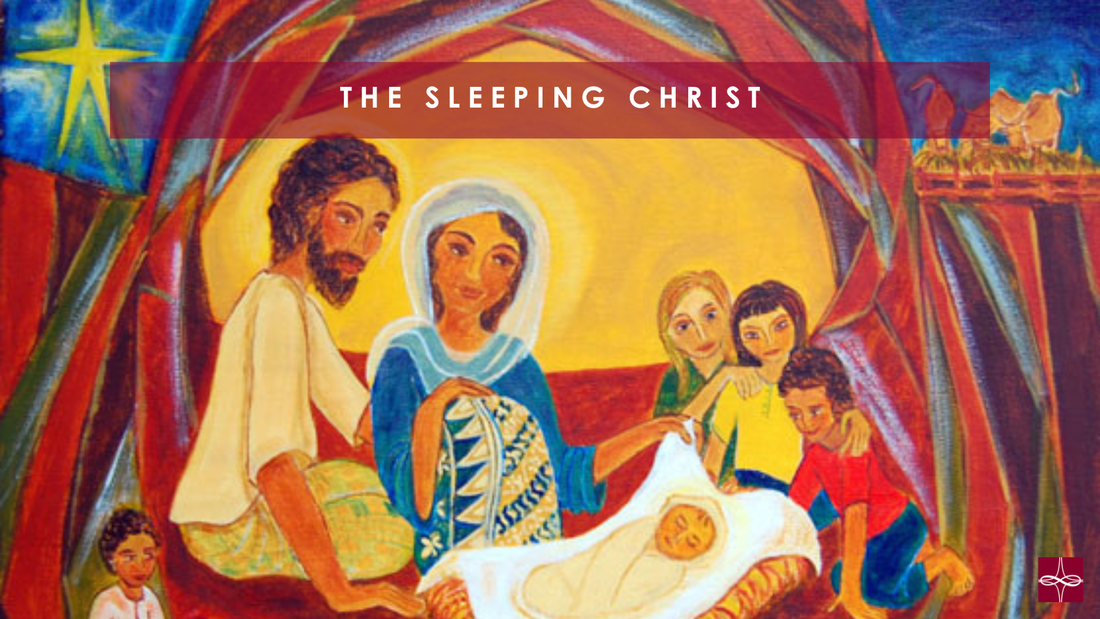

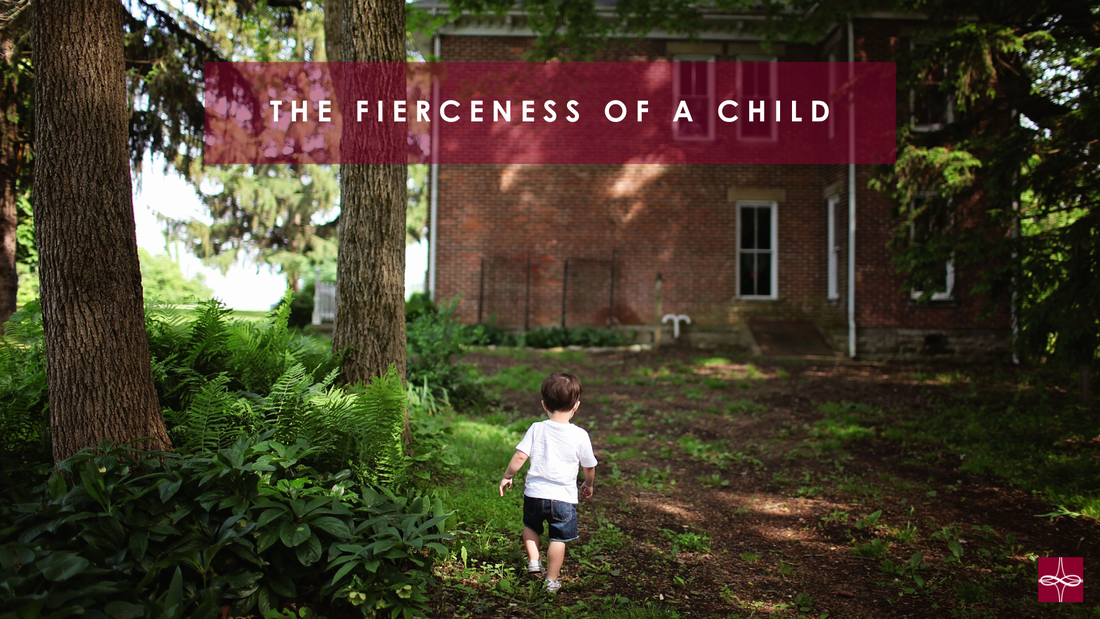
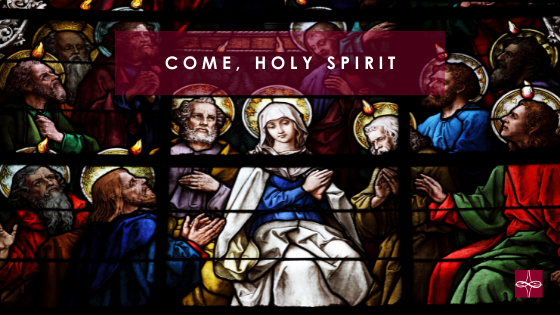

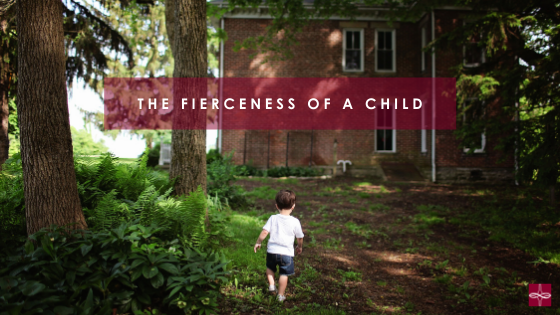


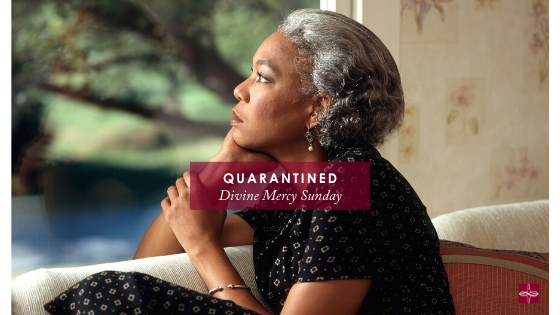


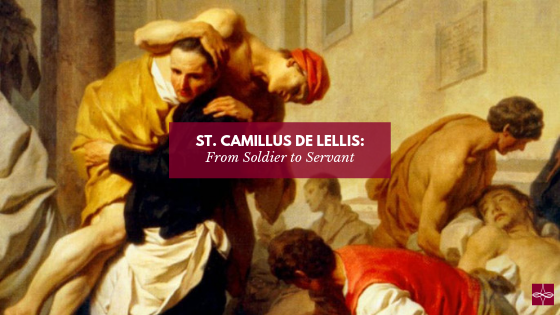

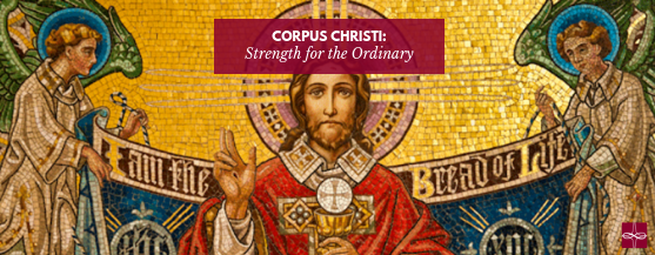

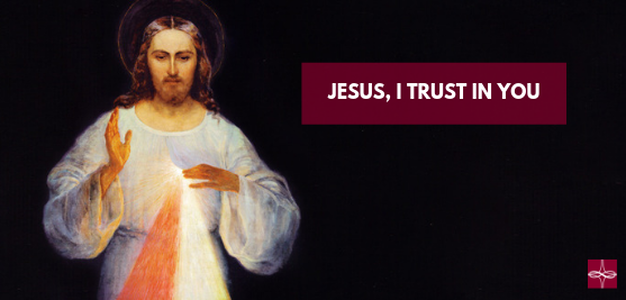

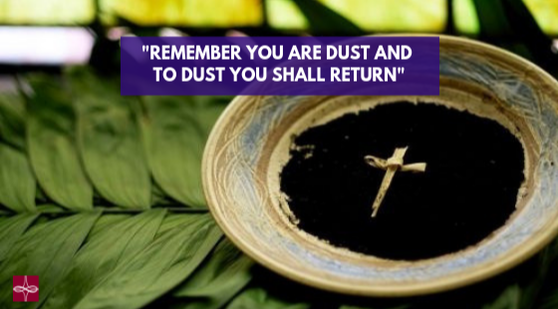

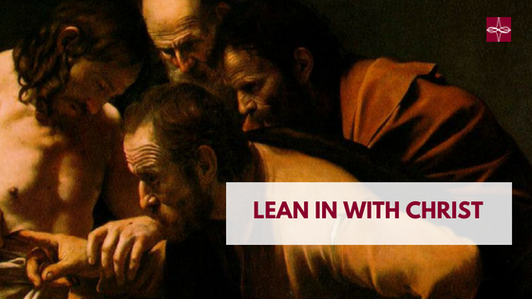

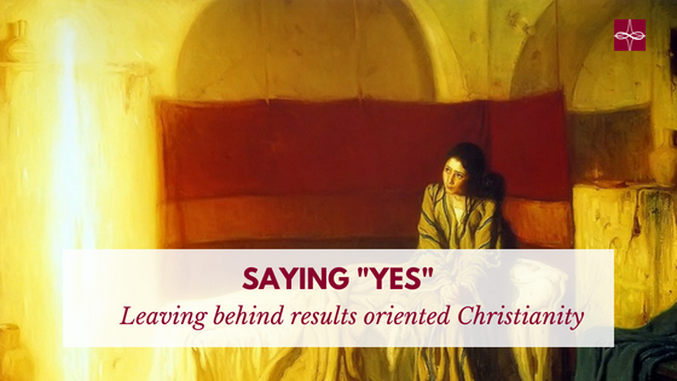

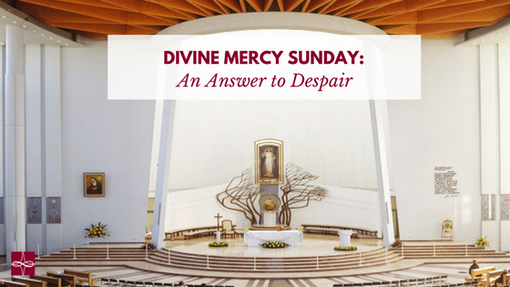

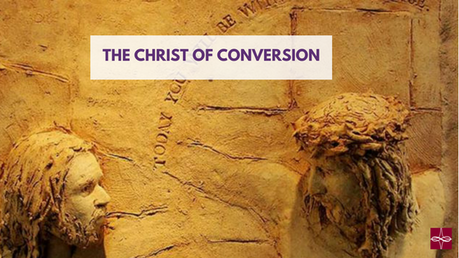

 RSS Feed
RSS Feed